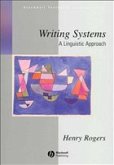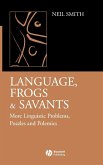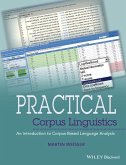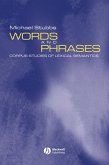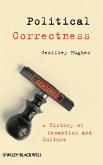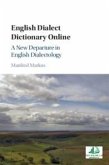Where do new words come from? How are words put together? How do we assign meaning to words? These are among the most compelling questions for students of language and linguistics. English Words is a comprehensive and accessible introduction to the study of English words from a theoretically informed linguistic perspective. Assuming little or no background in linguistics, Harley approaches the study of words from several directions, including phonology, morphology, syntax, semantics, historical linguistics, and psycholinguistics. Using examples pulled from history, from Scrabble, and even from the funny pages, this book is sure to make word study a breeze for students and instructors alike. English Words: A Linguistic Introduction gives students a command of the basic theory in each area, skill in analyzing and understanding English words, and the foundation needed for more advanced study in linguistic theory or lexicology.


